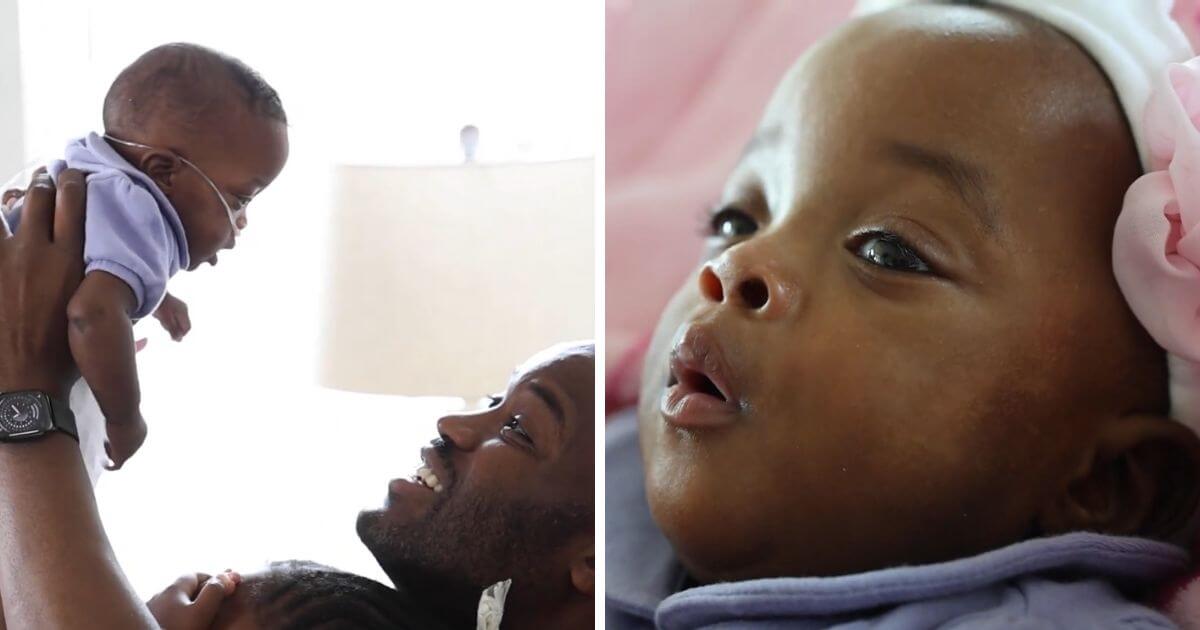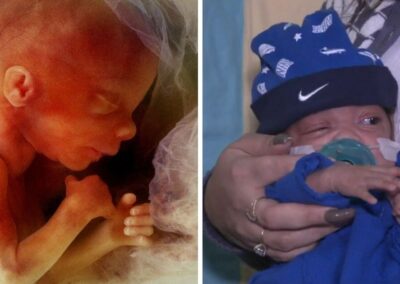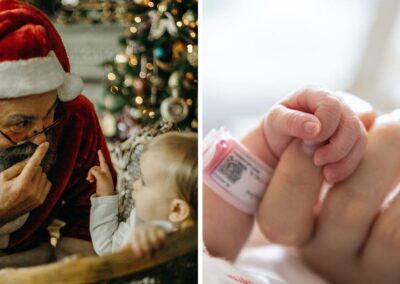A baby girl born at just 22 weeks and five days has been discharged from a national military medical centre in Maryland, USA, thanks to a combined effort from a number of medical personnel. The tiny baby is the most premature surviving baby to have made it home from the hospital’s neonatal intensive care unit (NICU).
Mariam Aliyah was born weighing just 460 grams, or 1.1lb, after her mother Aida went into labour early due to a bacterial infection. Little Mariam spent five months in the medical centre’s NICU before being discharged home, shortly after her original due date.
Army Major Dr Mathew Harrell was the attending neonatologist present at Mariam’s delivery. “Our team resuscitated Mariam in the delivery room and transported her to the NICU”, he said. “Infants born at 22 weeks gestation are extremely fragile and small”.
“Babies born this immature require breathing tubes placed in the delivery room, and they are placed on special neonatal ventilators until they are more mature”, Harrell explained. “Every organ is also immature, especially blood vessels in the brain, which have a high risk of rupturing causing bleeding into the brain”.
“Mariam required many interventions in her first weeks of life to keep her alive and to allow her body to mature”.
“Miraculous” baby
Dr Harrell said “She developed numerous health conditions expected of a baby born that premature, including bacterial infections, chronic lung disease, and retinopathy of prematurity requiring eye surgery”.
Mariam was eventually discharged shortly after her mother’s original due date. She still needed to be on oxygen, but Dr Harrell said that she is doing very well.
“She is gaining weight and obtaining milestones appropriate for an infant born at her premature age”, he said. “She still requires oxygen at home for her lungs, but she is eating everything by mouth”.
Another medic involved in the little fighter’s care described it as “miraculous” that Mariam not only survived, but is now thriving.
Gratitude all around for all involved in her care
Mariam’s mother Aida described her as “thriving” now that she is at home. Her father, US Navy Lieutenant Commander Alioune Diop, said “We will be forever grateful to the Walter Reed NICU team for going above and beyond to keep our daughter alive, as healthy as possible, while keeping us sane in the process”.
Dr Harrell praised the large medical team who cared for Mariam during her time in hospital, which included neonatologists, residents, nurses and respiratory therapists. “The nurse and doctors all cared very much for her, and she is the most premature infant survivor we have discharged from our NICU”, he said.
Additionally, both Dr Harrell and another neonatologist, US Army Captain Dr Brain Graziose, had high praise for Mariam’s parents.
“Mariam’s parents showed all of us amazing grace during their daughter’s admission”, Dr Harrell said. “They never lost faith in Mariam’s ability to fight through all of the odds, and they were such a wonderful family to take care of”.
Dr Graziose added “It also can’t go unsaid that despite working their regular jobs, Mariam’s parents spent time every day at her bedside and the care they provided in joint decision-making with the medical team, holding and feeding Mariam, changing diapers, and lifting the spirits of the medical team cannot be underappreciated”.
“Lastly, and most importantly, Mariam deserves the most credit of anyone. She is one of the strongest patients that I have ever taken care of”, Dr Graziose continued.
Medical advances see better survival rates for extremely premature babies
Babies like Mariam, born at just 22 weeks gestation, are increasingly surviving thanks to improvements in medicine.
A 2008 study looking at survival rates for a neonatal intensive care unit in London found that neonatal survival rates at 22 and 23 weeks gestation had improved over time. In 1981-85, no babies who were born at these gestational ages survived to discharge. However, by 1986-90, 19% did and this increased to 54% in the period 1996-2000.
In the decade to 2019 alone, the survival rate for extremely premature babies born at 23 weeks doubled, prompting new guidance from the British Association of Perinatal Medicine (BAPM) that enables doctors to intervene to save premature babies from 22 weeks gestation. The previous clinical guidance, drafted in 2008, set the standard that babies who were born before 23 weeks gestation should not be resuscitated.
According to a recent study, there were a total of 261 babies born alive at 22 and 23 weeks who survived to discharge from hospital in 2020 and 2021.
Spokesperson for Right To Life UK, Catherine Robinson, said “Congratulations to the Diop family on the birth of their baby girl and her amazing journey from being born at just 22 weeks and 5 days to thriving at home. It is a testament to the dedication of medical staff that babies like Mariam are now able to survive when only a few decades ago their chances of survival would have been much smaller”.












